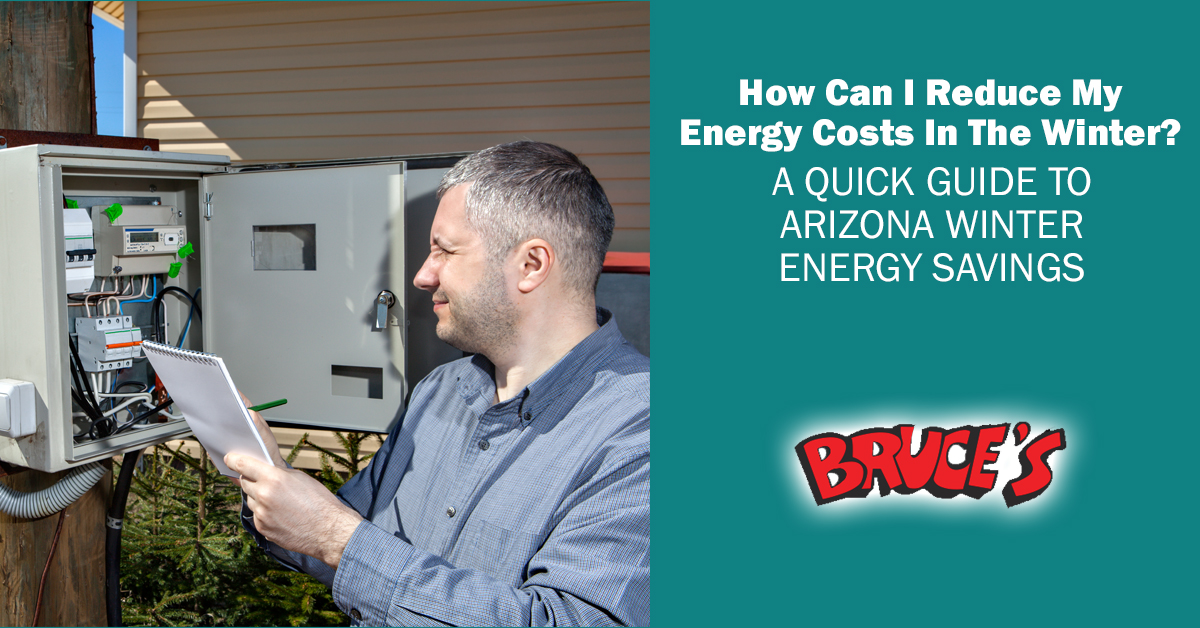 During cold winter months, you are perfectly aware that heating costs make up the bulk of your electricity or gas bill.
During cold winter months, you are perfectly aware that heating costs make up the bulk of your electricity or gas bill.
Consequently you want your HVAC system to work as efficiently and as effortlessly as possible, so you can enjoy the warmth it produces without worrying yourself to death about how rapidly the dial on your energy meter is spinning.
Unfortunately, wintertime heat loss is a common source of waste in most homes. Even well-constructed buildings are far from airtight and it is amazing how much heat can escape into the open air if sources of leakage go unnoticed.
As winter has progressed have you noticed your energy costs rising? Do your bills seem out-of-proportion in comparison to friends and neighbors? Do you notice your furnace kicking on and off more frequently than in the past? Are there certain rooms in your home that seem noticeably colder than others?
All of these indicate you have a heat loss problem and that it is significant enough to be having a measurable impact.
Learn the sources of heat loss problems.
Identifying The Sources Of Heat Loss Trouble
 Air leaks in homes can happen just about anywhere. The best way to detect them is to contact your local energy company and ask them to send a consultant to your home to perform a heat loss audit (this service may be offered for free). If they can’t or won’t send someone you can always hire a private home energy auditor, who will most likely do it for a relatively small fee.
Air leaks in homes can happen just about anywhere. The best way to detect them is to contact your local energy company and ask them to send a consultant to your home to perform a heat loss audit (this service may be offered for free). If they can’t or won’t send someone you can always hire a private home energy auditor, who will most likely do it for a relatively small fee.
In the meantime, you can look around on your own to see what you can spot. Here are a few things to check for:
Doors And Windows
Cracks and spaces here are fairly easy to find. Just stand on the other side, feel around the perimeter of your doors and windows and see if streams of warm air are escaping (or cool air is coming in). It can usually be fairly easy to fix door and window gaps with caulk or weather stripping that you can buy and apply yourself.
Other locations where gaps may be causing air leakage include electrical outlets, plumbing cuts beneath sinks and dryer vents on outside walls. All can be plugged with caulk or foam sealers (just make sure to remove the foam sealer before using your dryer).
Filters And Vents
HVAC units won’t move air properly if filters are clogged or vents plugged or blocked. It’s fairly easy to check for this and to take action to combat it, either by cleaning where you can or buying a replacement air filter when it’s dirty.
Attic Heat Loss
This can be traced to inadequate insulation, unsealed wall partitions that channel heat from below or even poor attic ventilation.
Insulation
For the most part you won’t be able to tell if the insulation in your walls, floors and ceilings is adequate or has somehow been compromised. Bad insulation is a big source of leakage, however, and it is one problem a home heat loss audit can help you uncover.
Heat Loss Is Your Loss
Heat loss will make you colder, cost you money and put undue stress on your furnace to the point where its life span may be reduced.
If You’ve Noticed Heat Loss, Call The Heating Experts
Have you noticed heat loss in your home or problems with your heater? Contact the heating and cooling experts at Bruce’s Air Conditioning & Heating. Our licensed and professional technicians will thoroughly inspect your heater and home and provide a viable solution to your problem.
Trust the industry experts and call us today! And don’t forget to “Follow Us” for future Post and Information







 The term “energy management system” refers to the process of monitoring energy usage and improving energy savings in businesses and homes. To put it simply, business and home owners can observe how much energy is being used on site and then implement strategies to decrease this usage.
The term “energy management system” refers to the process of monitoring energy usage and improving energy savings in businesses and homes. To put it simply, business and home owners can observe how much energy is being used on site and then implement strategies to decrease this usage. When winter sets in and temperatures start to drop, you can expect your heating bill will go up
When winter sets in and temperatures start to drop, you can expect your heating bill will go up No one likes paying a hefty energy bill. However, you do require heating in the winter and cooling in the summer for you and your family to be comfortable.
No one likes paying a hefty energy bill. However, you do require heating in the winter and cooling in the summer for you and your family to be comfortable. Although modern air conditioners are designed for efficiency, there are certain false beliefs many people still adhere to when it comes to their energy bill and air conditioning.
Although modern air conditioners are designed for efficiency, there are certain false beliefs many people still adhere to when it comes to their energy bill and air conditioning.



